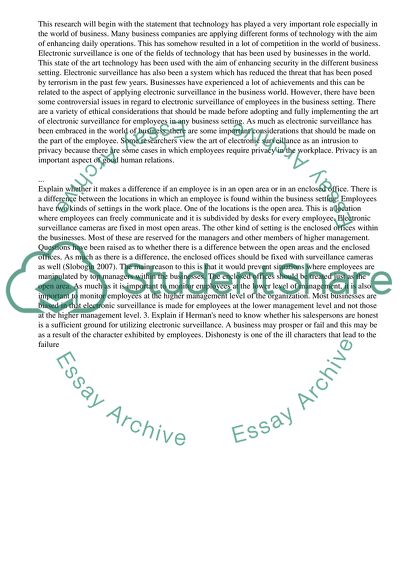Cite this document
(“Where an employee can reasonably expect to have privacy in the Research Paper”, n.d.)
Where an employee can reasonably expect to have privacy in the Research Paper. Retrieved from https://studentshare.org/business/1441568-electronic-surveillance-of-employees
Where an employee can reasonably expect to have privacy in the Research Paper. Retrieved from https://studentshare.org/business/1441568-electronic-surveillance-of-employees
(Where an Employee Can Reasonably Expect to Have Privacy in the Research Paper)
Where an Employee Can Reasonably Expect to Have Privacy in the Research Paper. https://studentshare.org/business/1441568-electronic-surveillance-of-employees.
Where an Employee Can Reasonably Expect to Have Privacy in the Research Paper. https://studentshare.org/business/1441568-electronic-surveillance-of-employees.
“Where an Employee Can Reasonably Expect to Have Privacy in the Research Paper”, n.d. https://studentshare.org/business/1441568-electronic-surveillance-of-employees.


